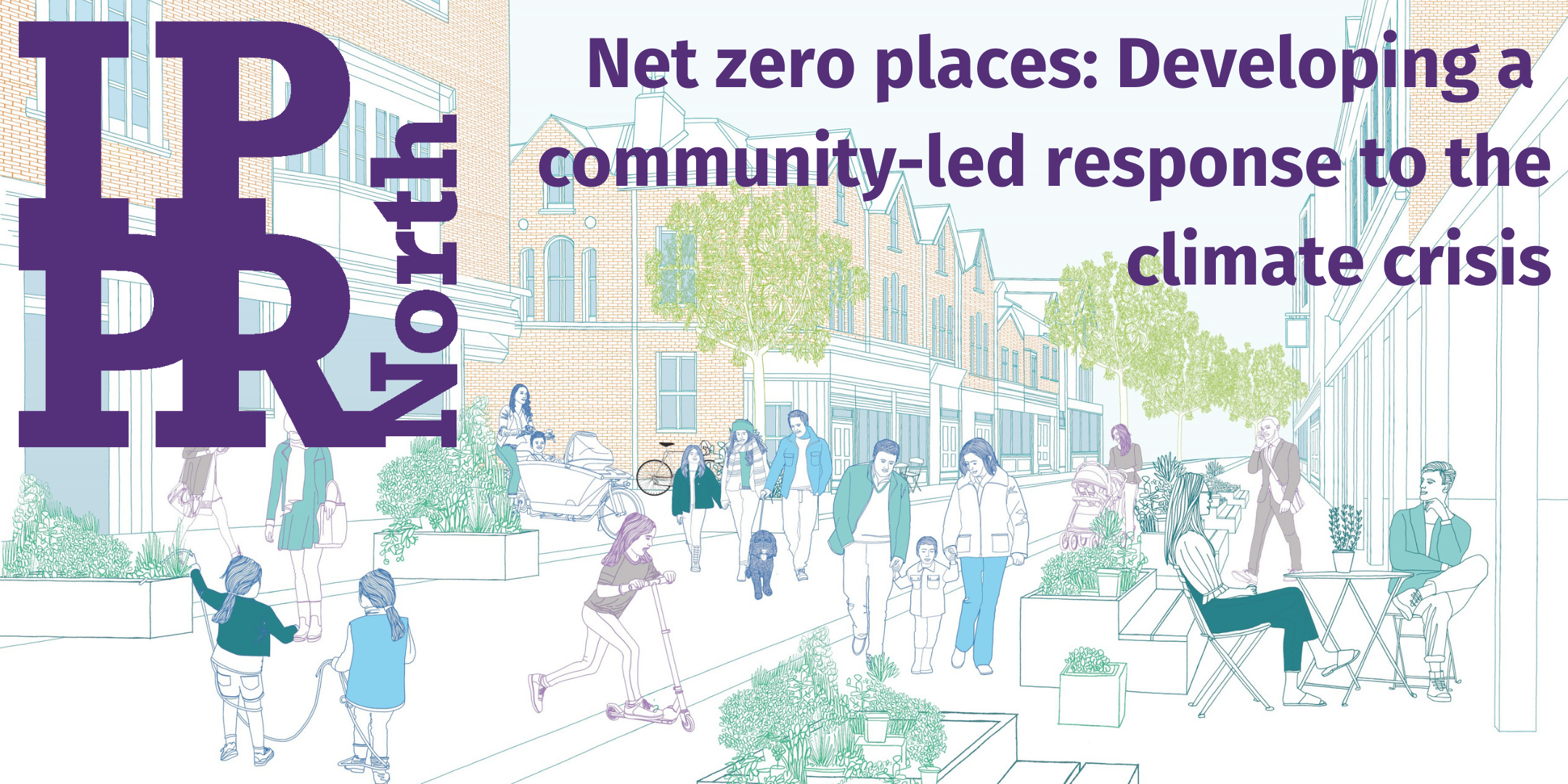Realising a community-powered transition to net zero
Posted on 11 Mar 2022 Categories: Climate crisis, Climate justice, Local initiatives, News, Reports, The place we want
by Rethinking Poverty

IPPR North and partners Scottish Power this week launched their new report on Net zero places and developing a community-led response to the climate crisis. The report argues that the transition to net zero will have ‘a significant impact on everyone’s lives’, yet ‘too often net zero policy is designed from above by policymakers and enacted upon people and places’. It states that a just and ambitious transition should ‘also improve our quality of life and tackle the injustices in our economy and society’, but in order to achieve this ‘change will need to be rooted in our neighbourhoods and communities’.
IPPR North conducted research in two case study areas to to understand how different communities will be affected by the climate crisis, and to work with the residents to ‘develop a positive vision of the future’:
‘Liverpool City Region was chosen to represent a northern metropolitan city region and reflect the scale of change required to the UK’s urban areas. The Isle of Anglesey was chosen as it represents a dispersed rural area at risk from climate breakdown, but which could also see benefits from the net zero transition.’
Based on participative workshops, the residents came to two distinct visions for these types of places, ‘a child-friendly Liverpool, providing a greener, better future by building on what makes the city region great’, and ‘the rural community where cultural and natural heritage is celebrated as part of a place’s sustainable future’. The research also revealed many commonalities between different communities: people believe more can be done to tackle the climate crisis ‘if their communities have a greater say on what a net zero future looks like, and if more decisions are made locally’.
The final part of the report outlines policy principles that could help realise these shared desires across communities. The principles put forward include leaving ‘no people or places behind’, harnessing community pride, giving ‘communities ownership of assets and shaping a sustainable economy that works for local areas’, creating places for children, and making ‘space for nature and green spaces for people’. Fundamentally, it argues that by shifting power to the local level, net zero policies can be designed with specific places in mind, and ‘only then can a community-powered response to the climate crisis be realised’.
Read the full report here.
Posted on 11 Mar 2022 Categories: Climate crisis, Climate justice, Local initiatives, News, Reports, The place we want
